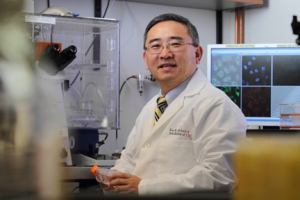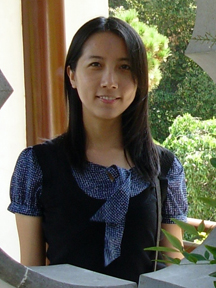Keck School researchers awarded grant to study Kaposi’s sarcoma-associated herpesvirus
By Jon Nalick
 Principal investigator Jae Jung received a $7.5 million grant to help discover how to short circuit development of Kaposi’s sarcoma.
Principal investigator Jae Jung received a $7.5 million grant to help discover how to short circuit development of Kaposi’s sarcoma.
(Photo/Phil Channing)
The National Institutes of Health (NIH) have awarded Keck School of Medicine of USC researchers a five-year, $7.5 million grant to investigate how Kaposi’s sarcoma-associated herpesvirus (KSHV) evades the immune system and triggers certain cancers.
Principal investigator Jae Jung, PhD, the Fletcher Jones Foundation Chair and Hastings Foundation Professor of Molecular Microbiology and Immunology at the Keck School, said the research aims to find ways to short circuit the development of Kaposi’s sarcoma. This malignant tumor, often caused by KSHV, is more prevalent among people with compromised immune systems, such as patients with AIDS. … Read More »


